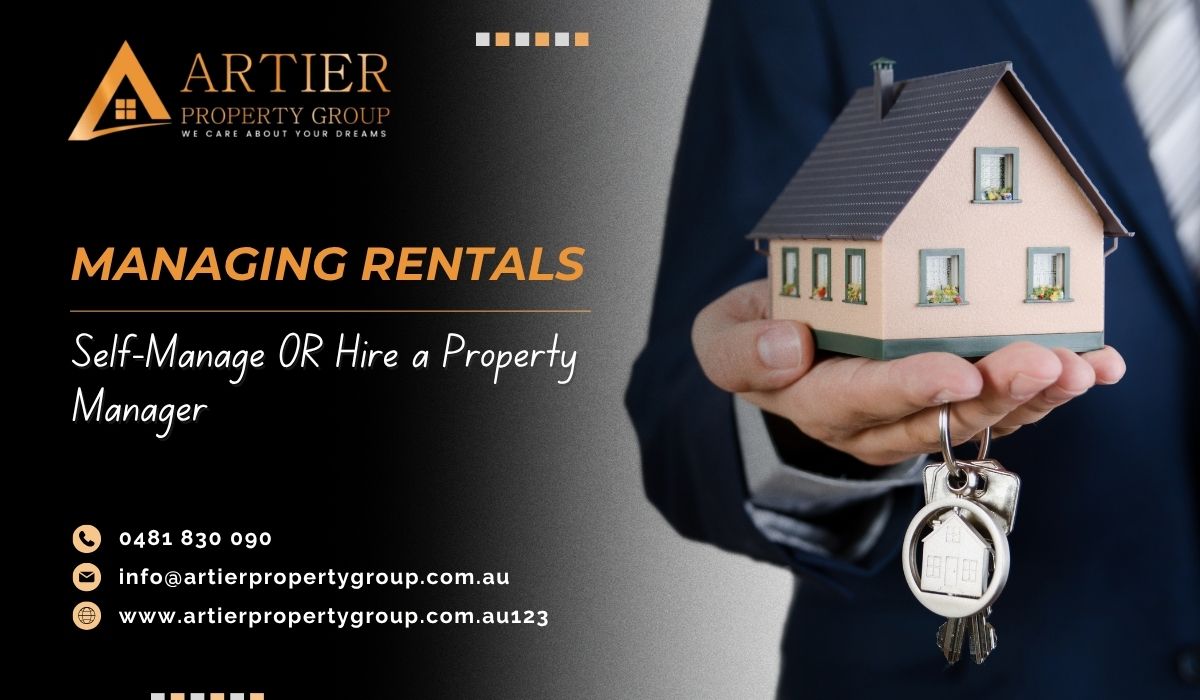So you’ve invested in a rental property, congratulations! Now comes the crucial decision: are you going to roll up your sleeves and manage it yourself, or hand the reins over to a professional property manager? There’s no one-size-fits-all answer, and both approaches have their distinct advantages and disadvantages.
Let’s break them down to help you decide what’s best for your situation.
The Self-Management Route: Taking Control
For many landlords, the idea of self-management is appealing, primarily due to the potential cost savings and direct control.
Pros of Self-Managing:
- Cost Savings: This is often the biggest draw. By managing the property yourself, you avoid paying property management fees, which typically range from 8-12% of the monthly rent. Over time, these savings can add up significantly.
- Complete Control: You have the final say on everything from tenant screening criteria and lease terms to repair decisions and rent increases. This level of control can be very reassuring, especially if you have a specific vision for your property.
- Direct Relationship with Tenants: You build a direct relationship with your tenants, which can lead to better communication and a more personal understanding of their needs. This can be beneficial for fostering long-term tenants.
- Flexibility: You can set your schedule for property showings, maintenance checks, and administrative tasks. This can be ideal if you have a flexible job or enjoy hands-on involvement.
Cons of Self-Managing:
- Time Commitment: This is perhaps the biggest “con.” Managing a rental property is a demanding job. It involves marketing, tenant screening, lease agreements, rent collection, maintenance coordination, emergency calls, inspections, and potentially evictions. This can quickly consume a significant amount of your time, especially if you have multiple properties or a full-time job.
- Stress and Hassle: Dealing with late rent payments, difficult tenants, unexpected repairs, and legal disputes can be incredibly stressful and emotionally draining.
- Lack of Expertise/Knowledge: Do you know the ins and outs of landlord-tenant laws in your region? Are you proficient in marketing strategies to attract quality tenants? Do you have a network of reliable contractors? A lack of expertise can lead to costly mistakes.
- Emergency Calls: Be prepared for those 2 AM calls about a burst pipe or a broken furnace. As a self-manager, you’re on call 24/7.
Difficulty Setting Boundaries: It can be challenging to maintain a professional distance with tenants, especially when issues arise.
- Vacancies and Turnover: Effective marketing and quick turnover between tenants are crucial for minimizing lost income. If you’re not proactive, vacancies can eat into your profits.
- Vacancy Periods: Finding new, qualified tenants can be a time-consuming process. Poor marketing or an inefficient screening process can lead to longer vacancy periods, directly impacting your income.
- Emotional Involvement: When you’re directly involved, it’s easy to take things personally. This can cloud your judgment when making tough decisions, like raising rent or addressing lease violations.
Hiring a Property Manager: The Professional Touch
For landlords who value their time, peace of mind, or simply prefer a hands-off approach, a professional property manager can be a game-changer.
Pros of Hiring a Property Manager:
- Time Savings: This is the ultimate luxury. A property manager handles all the day-to-day tasks, freeing up your time for other pursuits, whether it’s family, work, or acquiring more properties.
- Expertise and Experience: Property managers are professionals in the field. They understand local landlord-tenant laws, market trends, and effective tenant screening processes. They often have established networks of reliable contractors for maintenance and repairs.
- Better Tenant Screening: Professional managers often have rigorous screening processes that help them find high-quality, reliable tenants, reducing the risk of late payments and property damage.
- Reduced Vacancy Rates: They are skilled at marketing properties and efficiently handling tenant turnover, minimizing the time your property sits vacant.
- Stress Reduction: Say goodbye to late-night emergency calls and stressful tenant disputes. The property manager handles all tenant communication and issues.
- Legal Compliance: Staying updated on ever-changing landlord-tenant laws can be complex. A good property manager ensures your property remains compliant, helping you avoid costly legal battles.
- Professional Rent Collection: They have established systems for collecting rent, enforcing lease terms, and handling delinquencies.
- Market-Based Rent Analysis: They can help you set competitive rental rates to maximize your income while attracting good tenants.
- Access to Vendors: Property managers typically have a network of trusted and affordable contractors for various maintenance and repair needs, often at discounted rates.
- Geographic Flexibility: If your rental property is far from where you live, a property manager is essential for on-the-ground management.
Cons of Hiring a Property Manager:
- Cost: The most obvious drawback is the fee. These fees can eat into your profit margins, especially if you have a lower-rent property.
- Communication Gaps: While they handle the daily tasks, communication with your property manager can sometimes be less frequent or less detailed than you’d prefer.
- Limited Personal Relationship with Tenants: If building a direct rapport with your tenants is important to you, hiring a manager will diminish that.
Making Your Decision
The choice between self-management and hiring a property manager ultimately depends on your circumstances, goals, and personality.
Consider self-managing if:
- You have ample time to dedicate to the property.
- You enjoy hands-on involvement and problem-solving.
- You are comfortable with legal documents and tenant communication.
- You want to maximize your immediate cash flow by avoiding management fees.
- You only have one or two properties.
Consider hiring a property manager if:
- You have limited time or live far from the property.
- You prefer a hands-off, passive investment.
- You want to minimize stress and hassle.
- You value professional expertise in legal matters, tenant screening, and maintenance.
- You have multiple properties or plan to scale your portfolio.
- You are new to landlording and want guidance.
Before making a final decision, thoroughly research property managers in your area if you’re considering that route. Ask for references, inquire about their fees and services, and understand their communication style.
Whether you choose to self-manage or hire a professional, remember that being a landlord is a significant responsibility. A well-managed property, regardless of the approach, is key to a successful real estate investment.
Need help managing your rental property or looking for expert advice? Get in touch with our experienced team at Artier Property Group. We offer tailored property management solutions in North Brisbane to suit your needs, whether you prefer a hands-off approach or need support with specific landlord responsibilities. Call us today at 0481 830 090 to discuss how we can help you make the most of your investment.





